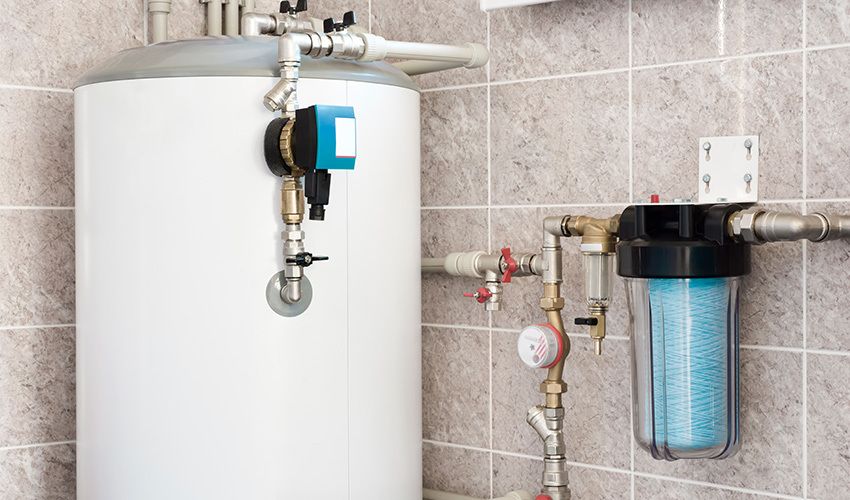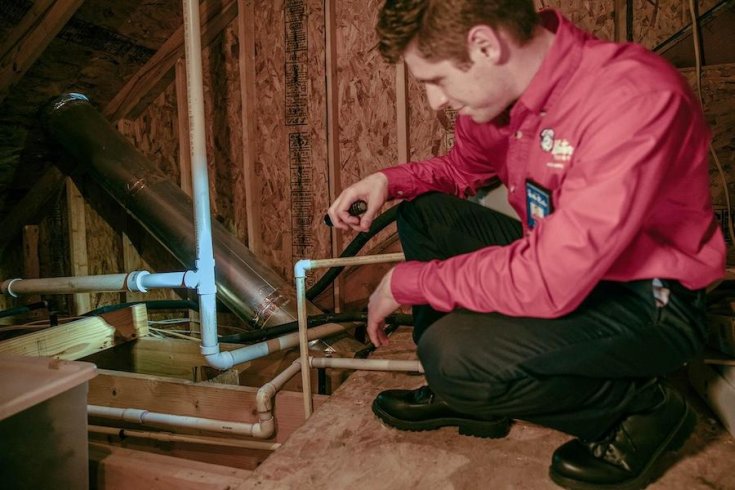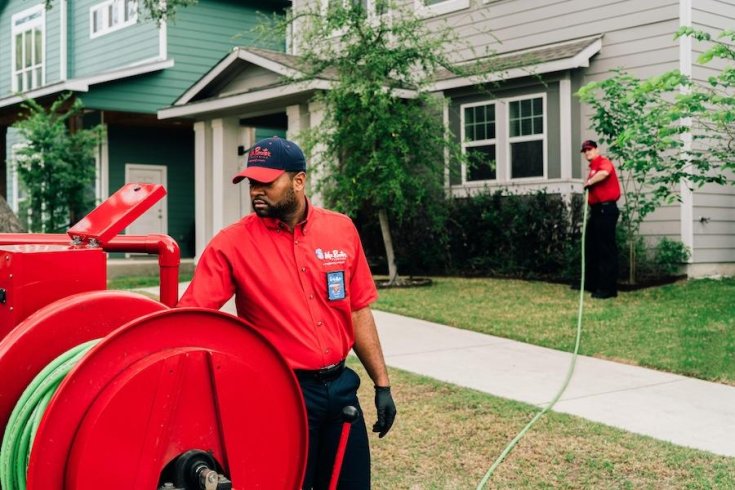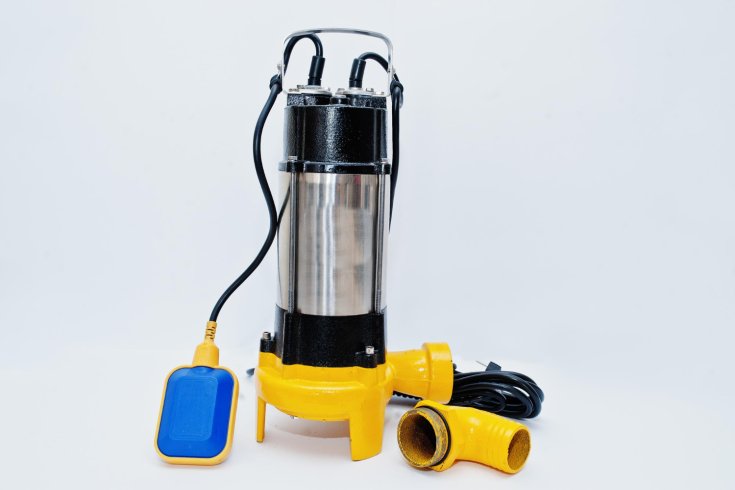Dual-Tank Water Softeners: Are They Worth It?
If you’re considering water softener installation, you may have heard of dual-tank water softeners. Unlike single-tank systems, which only have one tank to soften water, dual-tank water softeners have two tanks that reliably provide softened water. Mr. Rooter Plumbing looks at how they work and the benefits they offer.
How Do Dual-Tank Water Softeners Work?
A dual-tank water softener ensures access to soft water, even when one tank is regenerating. Water softeners remove minerals like calcium and magnesium from your water, making it "hard." Over time, these minerals build up in the resin beads inside a single-tank water softener, which needs to pause to recharge. This recharging process, known as regeneration, flushes out the minerals but temporarily stops the water-softening process.
With a dual-tank water softener, however, two tanks alternate in their cycles. While one tank is in use, the other can regenerate. This means you don’t have to worry about being without soft water while one tank cleans and recharges. A plumber in Bethel Park, PA specializing in water softener installation can help you choose the right system for your home and install it to run efficiently.
Benefits of Dual-Tank Water Softeners
Dual-tank water softeners offer several advantages, especially for families or properties that use much water throughout the day. Here are some of the main benefits:
- Constant Access to Soft Water
With a dual-tank water softener, one tank is always ready to supply softened water. This can make a huge difference for larger households or homes where water is used frequently throughout the day. If you've ever noticed your water suddenly becoming harder—like in the middle of doing dishes or taking a shower—that’s probably because your single-tank system was in regeneration mode. A dual-tank system eliminates that problem.
Dual-tank systems can be more energy-efficient because they regenerate only as needed. Single-tank systems often follow a schedule and may regenerate even when it isn’t essential, leading to wasted energy and water. On the other hand, dual-tank softeners can be programmed to regenerate based on actual water usage. This “on-demand” system can save energy and water, which is good for your wallet and the environment.
A dual-tank system may experience less wear and tear over time because it doesn’t have to work as hard to keep up with high water demands. This can also reduce the likelihood of needing a plumbing repair service for water softener issues. Fewer regenerations mean the components are used less frequently, potentially extending the lifespan of your system and saving you from calling a plumber for repairs down the line.
When Should You Consider a Dual-Tank System?
A dual-tank water softener might be worth the investment if any of these situations apply to your household:
- Large Family or High Water Usage
If you have a large family, run frequent loads of laundry, or use a lot of water daily, a dual-tank system can provide the constant soft water supply you need. Imagine running out of soft water right in the middle of multiple showers, a dishwasher cycle, and laundry simultaneously! A dual-tank system is often a better choice in homes where water is in constant demand.
Some people run businesses that use water out of their homes. For example, home bakeries or salons often need hot, soft water throughout the day. Dual-tank water softeners are ideal for these situations because they ensure your business won’t be interrupted by a pause in water softening.
In areas with extremely hard water, you may notice that a single-tank system must regenerate frequently, meaning it’s often not softening water when needed. A dual-tank system can handle high hardness levels better by providing consistent softened water without frequent interruptions. Check with a plumbing service to see if your area has especially hard water, as this can influence which system you should choose.
Are Dual-Tank Systems Expensive?
Yes, dual-tank water softeners typically cost more upfront than single-tank systems. This can include the cost of the unit itself and the water softener installation. The installation process for dual-tank systems might be slightly more involved, so hiring an experienced plumber who knows how to set up the tanks for efficient operation is essential. While the initial cost can be high, many homeowners find the long-term benefits worth it, especially if they’ve experienced the inconvenience of running out of soft water.
Maintenance Considerations
Dual-tank water softeners generally require the same level of maintenance as single-tank systems, but they may need it less frequently due to the reduced wear on each tank. Regular maintenance, including cleaning and replacing the resin beads as required, is essential for any water-softening system. If you have a dual-tank water softener, contact a plumbing repair service periodically to ensure it works efficiently and check for any issues before they become more significant problems.
Choosing the Right Water Softener Installation Service
Choosing the right plumbing service is essential when installing a dual-tank water softener. Look for plumbers experienced in water softener installation and ask if they specifically have experience with dual-tank systems. An expert plumber can help you determine if a dual-tank setup is correct for your needs and ensure the installation is done correctly. Proper installation by a professional plumbing service can prevent leaks and unnecessary repairs and improve the system’s efficiency.
Mr. Rooter Plumbing
So, are dual-tank water softeners worth it? The answer depends on your household's water needs and your budget. If you use a lot of water, live in an area with very hard water, or want the convenience of uninterrupted soft water, a dual-tank system is a great choice. While the initial cost may be higher, the long-term savings on water and energy and the reduced need for plumbing repair services can make it a sound investment. Dual-tank systems are especially valuable for larger families, small home businesses, and anyone who relies on constant access to soft water.
For those with lower water usage or a smaller household, a single-tank system might meet your needs just fine. But for anyone who has dealt with the frustration of running out of soft water at the worst possible moment, a dual-tank water softener could be a game-changer. It’s always a good idea to talk with Mr. Rooter Plumbing for professional advice on what type of water softener will work best for your home.
















